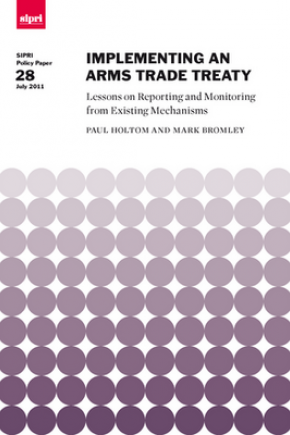Implementing an Arms Trade Treaty: Lessons on Reporting and Monitoring from Existing Mechanisms
In 2012 the United Nations will convene a conference to negotiate an arms trade treaty (ATT). The resulting treaty is expected to legally obligate states to provide information on their arms transfers and transfer control systems. This Policy Paper provides the first comprehensive overview of existing UN instruments that require states to report on their arms transfers, transfer controls and enforcement measures. It outlines the types of information required to assess compliance with an ATT, extracts lessons learned from the existing instruments and identifies areas of duplication. By highlighting the challenges that states face when reporting to existing mechanisms, providing constructive solutions and emphasizing the positive contributions to be made by non-governmental organizations, this report lays the foundation for a relevant and robust ATT reporting mechanism.
1. Introduction
2. International reporting mechanisms on arms transfers and transfer controls
3. Challenges for reporting implementation of an arms trade treaty
4. Non-governmental monitoring of international arms transfers
5. Options for reporting on arms transfers and implementation of an arms trade treaty
6. Conclusions


